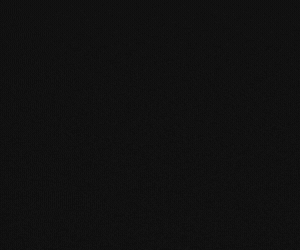The Illusion of Perfect Relationships Online
Social media floods users with images of seemingly perfect relationships. Carefully curated posts highlight luxurious dates, lavish gifts, and extravagant vacations, making them appear common. However, data suggests that 81 percent of partnered social media users regularly see posts about relationships, yet most remain unaffected. A smaller group, nine percent, report feeling worse after viewing these posts.
The effect is stronger among singles actively seeking a partner. Among this group, 33 percent feel worse about their dating prospects, with women reporting greater negative effects than men. This highlights how social media fosters unattainable ideals, leading some to compare their dating lives unfavorably.
Unrealistic Expectations and Mental Health Effects
By showcasing only the best moments, social media encourages unrealistic expectations about relationships. Research supports this, revealing that people who are not frequent social media users report being 11 percent happier in their marriages compared to regular users.
Additionally, frequent comparisons to idealized relationships contribute to lower self-esteem. Observing others engage in exclusive experiences can foster envy rather than inspiration. Studies suggest that for many, especially women, these comparisons intensify dissatisfaction with their own dating lives.

Curated Luxury vs. Reality in Dallas & Fort Worth Dating
Social media often promotes a glamorous version of dating that emphasizes luxury experiences over genuine connection. High-end restaurants, exclusive events, and designer gifts dominate online narratives, creating expectations that do not always align with real relationships. These portrayals can make daters feel pressured to conform to an idealized dating standard, where a relationship’s success is measured by appearances rather than compatibility or emotional closeness.
In North Texas, many seek relationships that fit their lifestyle, including those who prefer traditional romance and others who explore unconventional connections. Sugar daddies in Dallas, upscale matchmaking services, and exclusive dating clubs cater to those prioritizing status and luxury, highlighting how dating choices can be tailored to personal preferences.
The Role of Luxury in the Local Dating Scene
Luxury dating is prominent in Dallas and Fort Worth, reflecting the area’s strong focus on status and exclusivity. The dating landscape includes high-end restaurants, elite social circles, and exclusive matchmaking services that cater to affluent clientele. Social media amplifies these luxury trends, portraying them as the standard rather than a niche within the dating world.
Matchmakers in Dallas and Fort Worth observe this dynamic firsthand. Many clients seek relationships that align with their social standing, prioritizing financial security over emotional compatibility. In this environment, material success can sometimes overshadow genuine connection, emphasizing image over substance.

Social Media’s Influence on Dating Behavior
Social media affects dating behavior in more subtle ways. Ghosting, for instance, is a common occurrence in modern dating, and its prevalence is worsened by the ease of online interactions. Several studies highlight that modern dating, particularly in affluent metropolitan areas like Dallas, has become more transactional.
People also report feeling distracted by social media during romantic dates. Excessive use of online platforms can create unnecessary comparisons and lead to dissatisfaction. Some couples attempt to counteract these effects by setting boundaries, such as limiting social media use during time spent together.
The Psychological Impact of Social Comparisons
Seeing constant streams of post-worthy dates can cause negative social comparisons. Psychologists describe this effect in relation to “fear of missing out,” which contributes to anxiety and reduced satisfaction with one’s personal life.
Those frequently exposed to idealized relationships may begin to perceive real-world relationships as mundane. This can lead to unrealistic expectations about romance and, in some cases, dissatisfaction with a well-functioning but less publicly glamorous relationship.

New Dating Trends Encouraging Authenticity
Recent trends indicate a growing shift toward transparency in dating. The “Loud Looking” trend revolves around openly stating one’s relationship goals and dealbreakers. This contrasts sharply with the filtered portrayals of dating on social media.
According to data, 70 percent of singles looking for serious relationships now favor this direct approach. By focusing on clear intentions, this trend offers an alternative to the materialistic dating standards reinforced by online platforms.
Shared Interests Over Superficial Traits
Interest-based dating is gaining popularity as more people seek meaningful connections. Micro-communities centered around shared hobbies provide natural meeting environments, reducing the need for traditional dating structures.
This movement steers romance away from the extravagant expectations social media promotes. Instead of grand gestures or high-status dining, relationships form through mutual engagement in activities such as hiking, cooking, or artistic pursuits.
The Disconnect Between Online Displays and Reality
While some celebrate their relationships online, constant social media displays often indicate insecurity rather than genuine happiness. Research suggests that couples who frequently post about their relationships may actually have higher chances of breaking up.
Similar patterns emerge in spending habits related to dating. The online dating industry generates over $1.9 billion annually, with many users spending over $240 per year. Yet, despite this investment, free or low-cost dating alternatives tend to produce longer-lasting relationships.
Filtering Out Social Media’s Influence
Avoiding unhealthy comparisons can improve dating satisfaction. Experts recommend focusing on personal relationship progress rather than external portrayals. A more grounded approach includes assessing compatibility based on shared values and communication rather than external markers like luxury or status.
Setting healthy boundaries around social media use also plays a role in maintaining stronger relationships. Couples who avoid making public displays the foundation of their relationship tend to report greater stability and contentment. Expectations shaped through genuine connection, rather than curated perceptions, lead to more meaningful romantic outcomes.












